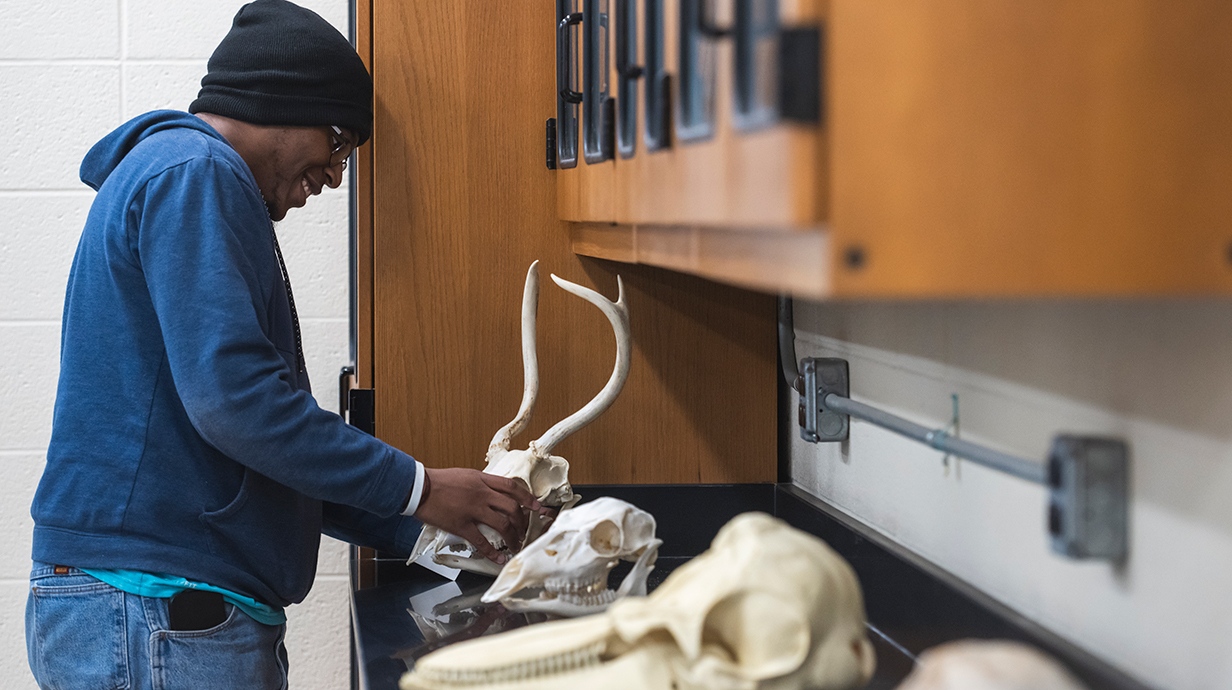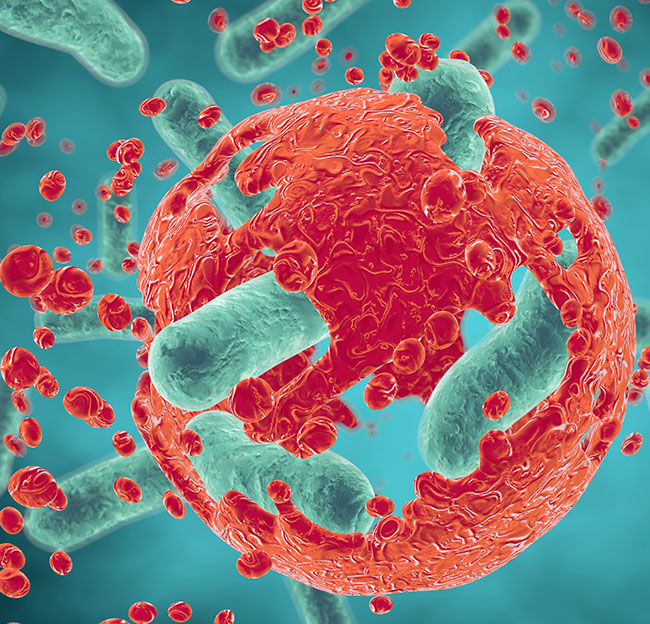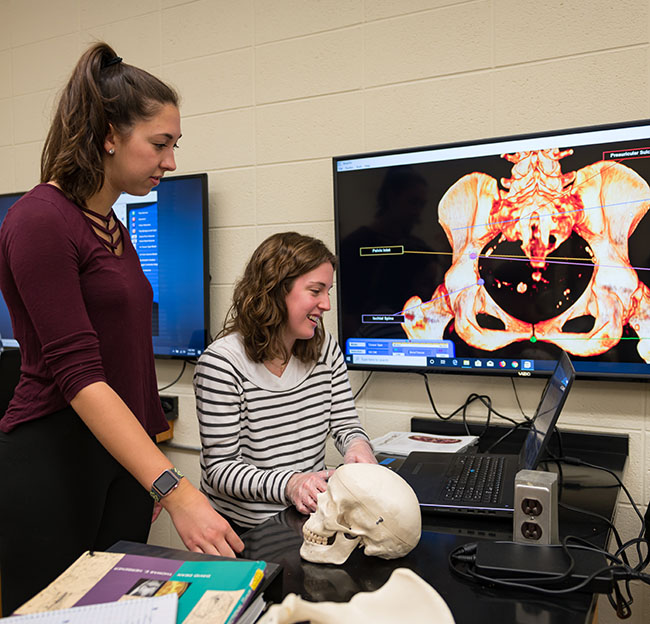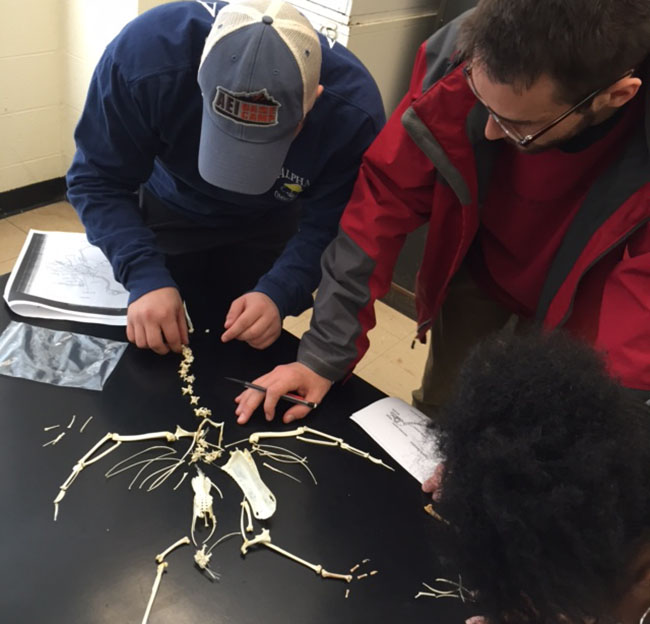Featured Biology Courses
Learn about some of the advanced undergraduate biology courses and how they prepare students for the future.

Biology Undergraduate Courses
The department offers undergraduate courses in the subfields of the discipline.
- 100- and 200-level introductory courses
- 300- and 400-level advanced undergraduate courses
- 500-level seminar-style courses that combine graduate students and undergraduate students, although there are separate expectations.
Below are a few examples of advanced undergraduate courses.
See all biology courses in the catalog.
Featured Courses

BISC 306: Virology
Virology introduces students to the basic principles of viruses and virus diseases in human, animals, and plants. Students learn the structure of viruses and the molecular mechanisms by which they replicate in cells. In addition, they learn the pathogenesis and clinical symptoms of viral diseases, how these diseases are treated with antiviral agents, and how they are prevented with vaccines. The course provides a strong infectious disease background for students interested in human health care and veterinary medicine.

BISC 310: Human Anatomy
This course is more advanced than the Anatomy & Physiology sequence taught for sophomores primarily going into nursing. Laboratory resources in this course provide students with an unparalleled entry into exploration of the structure of the human organism as well as the building blocks for success in professional programs such as medicine, dentistry, physical therapy, physician assistant, etc.

BISC 334: Ornithology
Ornithology helps to prepare students for almost any career in biology, as it brings together concepts from across the broad field of biology, allowing students to synthesize fundamental biological principles through the example of birds. Preparation for graduate and professional school programs is supported by lectures grounded in recent scientific literature and by laboratory activities that teach fundamental skills such as specimen dissection. Overall, students’ lives are enriched by learning to recognize the value and complexity of birds all around us.

BISC 578: Cell Imaging
Cell Imaging focuses on the theoretical and practical aspects of confocal microscopy, the workhorse of modern cell biology laboratories. This focus includes training on the department’s advanced confocal microscope, a Leica TCS SP8 X, with a white light laser. Students actively engage in all aspect of this course, which includes an imaging research project of the students’ own design involving the confocal microscope. Students also learn important skills related to experimental design as well as image processing and analysis. The important technical and conceptual skills taught in this class will help students succeed in biomedical and health science careers.
